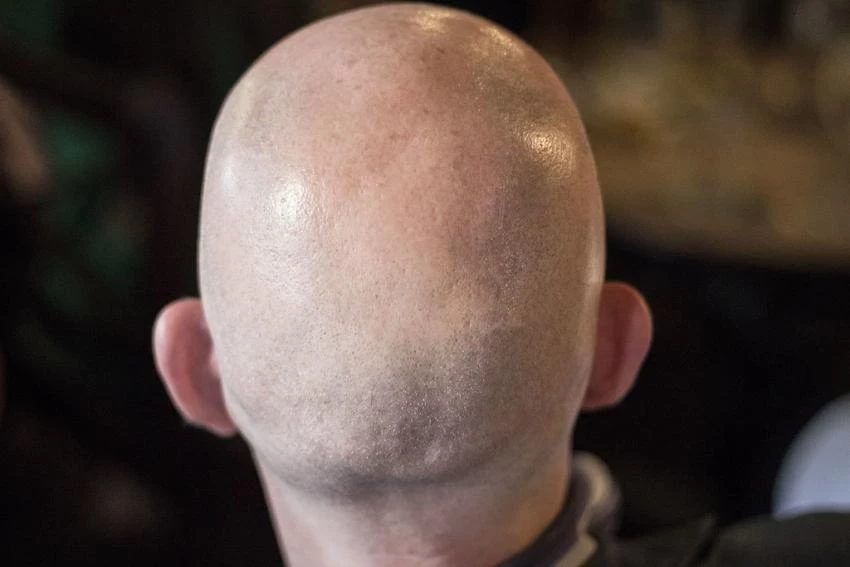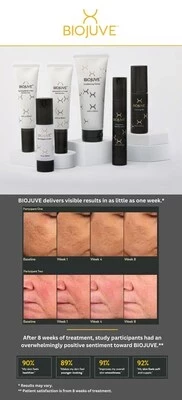‘Black Lives Matter’ Gets Indians Talking About Skin Lightening And Colorism

Enlarge this image
A package of «Fair & Lovely skin lightening cream at a shop in India. In response to calls for racial justice around the world, the product name is being changed to «Glow & Lovely.
Amit Dave/Reuters
hide caption
toggle caption
Amit Dave/Reuters

Chandana Hiran, 22, started a petition for a name change for the «Fair & Lovely skin lightening cream. She once used it but stopped a few years ago: «I’m not supposed to feel insecure about my own skin.
Chandana Hiran
hide caption
toggle caption
Chandana Hiran
Instead, Bollywood actresses star in TV commercials for skin-lightening creams.
The Indian beauty queen-turned-actress Priyanka Chopra – who starred in the U.S. TV hit Quantico – is one of the most famous. In 2008, she appeared in a series of promotional videos for a product called ‘White Beauty.’ She played a forlorn-looking single woman who, in the first episode, watched a slightly lighter-skinned woman strut past with a handsome man on her arm. In later episodes, after she used the skin-lightening cream, the man fell in love with her instead.
Another ad for Fair & Lovely suggests using it before going to a job interview.
Praise for white skin is a theme in popular music too. In a 2015 hit song called Chittiyaan Kalaiyaan – which means «pale wrists in the Hindi language – the male singer croons about how a woman’s pale skin makes him swoon.
«Oh my darling, angel baby, white kalaiyaan drives me crazy! the refrain goes.
When Hiran was a teenager, listening to such songs, she started using Fair & Lovely. She didn’t even have to buy it; her mother always had some in the family medicine cabinet.
The Impact Of Black Lives Matter
So this was the backdrop in India this spring, when George Floyd was killed in the U.S. and calls for racial justice echoed around the world.
«Can Indians support Black Lives Matter, when we are ourselves have so many prejudices? asks activist Kavitha Emmanuel, founder of a women’s charity in southern India called Women of Worth.
In 2009, Emmanuel started a campaign called Dark Is Beautiful, to combat colorism in India. Over the years, while counseling girls, she says she realized how deeply hurt Indian women have been by media messages about skin color.
«In our counseling sessions, this would keep surfacing. [They would keep] saying ‘I am dark,' she told NPR by phone from her home in Chennai. «It is not just about self-esteem in terms of their looks, but it also affects their overall performance in life.
A study confirms that the scenes in TV commercials for skin-lightening creams may sadly be accurate. A 2015 report by professors at Southern Illinois University and the Rochester Institute of Technology found that in India:
«A woman’s dark skin can preclude her from entering positions such as news anchor, sales associate, flight attendant and even receptionist because these jobs require exposure to and interaction with the public, who will judge her as unattractive, unworthy and incompetent. Fair-skinned women, conversely, are seen in most of these roles; their skin tone grants them unearned privilege and power within organizations as a result.
Emmanuel says many Indians now expressing support for Black Lives Matter in the U.S. are blind to such discrimination against racial and religious minorities at home. Many of the same celebrities tweeting about racial justice in the U.S. have actually starred in ads for skin-lightening creams.
View this post on Instagram
There is so much work to be done and it needs to starts at an individual level on a global scale. We all have a responsibility to educate ourselves and end this hate. End this race war here in the US, and around the world. Wherever you live, whatever your circumstances, NO ONE deserves to die, especially at the hands of another because of their skin color. On May 25th, George Floyd was pinned down by the neck by a Minneapolis police officer and died. He laid there, fighting for his life, struggling to breathe, and other officers just stood there and watched. The officer has now been charged with murder. George, I am praying for your family. ❤️ Text “FLOYD” to 55156 and sign the petition. #JusticeForGeorgeFloyd
A post shared by Priyanka Chopra Jonas (@priyankachopra) on May 29, 2020 at 10:08am PDT
Bollywood Backlash
Among the first Indian celebrities to express public sympathy after Floyd’s killing in the U.S. was the film star Chopra, who posted a lengthy message on Instagram in May with some of Floyd’s last words: «please, i can’t breathe.
https://www.instagram.com/p/CAx5P_njP-S/
«There is so much work to be done and it needs to starts at an individual level on a global scale, she wrote. «We all have a responsibility to educate ourselves and end this hate.
Her comments drew a backlash online. When Chopra’s husband, American singer/songwriter Nick Jonas, tweeted that he and his wife «Pri have «heavy hearts over «systemic racism, bigotry and exclusion, one user replied: «Was pri’s ‘heart heavy’ before or after she promoted skin lightening creams?
Was pri’s “heart heavy” before or after she promoted skin lightening creams? Was it “heavy” when she watched Muslims get lynched in her own country & said nothing? What about the time when you invited a fascist to your wedding? It seems like her heart is doing just fine.
— Amsi (@thisisamsi) June 3, 2020
Chopra has not replied to the tweets. But in a 2017 interview with Vogue India, she said she regretted appearing in ads for skin-lightening products. «I used it [when I was very young]. Then when I was an actor, around my early twenties, I did a commercial for a skin-lightening cream. I was playing that girl with insecurities. And when I saw it, I was like, ‘Oh s**t. What did I do?' Chopra was quoted as saying.
She told Vogue she now sympathizes with girls who feel insecure about their skin tone and has turned down offers to star in any more such ads.
Human rights activists in India have also accused Chopra and other Indian celebrities of hypocrisy for expressing sympathy for George Floyd and outrage over his killing but not condemning similar violence against minorities, particularly Muslims, in India. In recent years, under Prime Minister Narendra Modi’s Hindu nationalist government, attacks on India’s minority Muslims have skyrocketed. Dozens have been lynched in the streets with little public outcry.
. @priyankachopra good to see your solidarity for #GeorgeFloydWasMurdered and #BlackLivesMatter. But why are you silent on institutional Islamophobic violence in our own India's police against Muslims and persons presumed to be Muslim? Please say #MuslimLivesMatter in India ??? pic.twitter.com/D4xeSHiNcz
— Kavita Krishnan (@kavita_krishnan) May 31, 2020
Colonialism And Caste
Emmanuel and others trace India’s color discrimination back to the colonial period when mostly white Britons ruled over darker-skinned Indians. But its roots may go back even farther than that — to Hinduism’s ancient caste system, roughly based on a hierarchy of professions people are born into.
Historians of ancient India say discrimination based explicitly on skin color has never been part of the Hindu caste system. But it may have evolved over time. For centuries, members of the less privileged, lower castes traditionally did manual labor outdoors under the sun.
«The British colonizers were able to build on India’s existing caste system. So the upper caste people who were powerful had fairer skin. And the lower caste people, when they would work outside, those castes started having darker skin [from prolonged sun exposure], explains Neha Dixit, an Indian journalist who’s studied the history of colorism and written about her own experience as a slightly darker-skinned woman. (The euphemism her relatives used for her skin color is «wheatish – the color of wheat.)
«We have actually internalized all those prejudices, she says. «So anybody with fairer skin is supposed to be better-off than a dark-skinned person.
Those stereotypes have been reinforced in India for millennia. But modern ideas of racial equality — and the Black Lives Matter movement — are slowly making a dent. A landmark case against caste discrimination is currently under litigation in California, where Indian-American tech workers are accused of discriminating against a colleague because he’s a member of a lower caste.
New Name, Same Cream
A few years ago, when she was in her late teens, Hiran, the accounting student, stopped using Fair & Lovely cream. Unilever says its products do not contain potentially harmful bleach or mercury. But Hiran’s decision had more to do with a maturing sense of self rather than any health concerns, she says.
«I started to realize, OK, maybe the problem is not with me. Maybe I’m not supposed to look any other way, she says. «And I’m not supposed to feel insecure about my own skin.
This year, Hiran started an online petition to get the name of the product changed. It’s one of several such petitions that have flooded the internet in the wake of the Black Lives Matter movement.
A Texas woman of South Asian descent, Hetal Lakhani, also started an online petition against Shaadi.com, one of the most popular matrimonial websites, demanding it remove a function that allows users to search for potential partners on the basis of their skin color. Last month, the website obliged, issuing a statement saying it «does not discriminate and that the skin color filter was a «product debris left over in one of our advanced search pages.
Then, in late June, Fair & Lovely’s manufacturer, Unilever, made an announcement: It’s removing any references to ‘fair/fairness’ and ‘white/whitening’ and ‘light/lightening’ from all of its packaging.
«We are fully committed to having a global portfolio of skin care brands that is inclusive and cares for all skin tones, celebrating greater diversity of beauty, Sunny Jain, president of the company’s Beauty & Personal Care division, was quoted as saying. «We recognize that the use of the words ‘fair,’ ‘white’ and ‘light’ suggest a singular ideal of beauty that we don’t think is right.
But even though the packaging now only says the product moisturizes and gives a pink glow, these terms are understood to be euphemisms for lightening your skin.
The company says the name change will happen in the coming months. And this month, Unilever’s Indian branch announced a new name: Glow & Lovely. Its men’s product line will also be rebranded as Glow & Handsome.
The cosmetics brand L’Oreal says it’s making a similar change.
But some activists say that’s not enough – that it’s not the names that needed to be scrapped but the products themselves. Another big company, Johnson & Johnson, says it’s discontinuing two of its skin-lightening products altogether.
Souvenir Tube
Hiran calls the Fair & Lovely name change «a step in the right direction.
«It’s not a small thing that Fair & Lovely has done. Because this brand has thrived all these years on the insecurities of women. This is really changing the narrative, she says. «But it’s only the first step toward being more inclusive and diverse. No matter what you call it, it’s still going to be offensive.
Even though she hadn’t used the product in years, Hiran says she recently found an old tube of Fair & Lovely in her medicine cabinet. She says she’ll probably hold onto it.
«Now it’s going to become a souvenir, she laughs.
So the Fair & Lovely label will soon be history. But the question remains as to how long these skin-lightening products – whatever they’re called – will remain in India, along with the attitudes behind them.
NPR producer Sushmita Pathak contributed to this report.
Обсудим?
Смотрите также:












